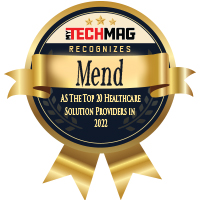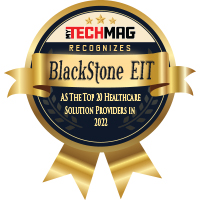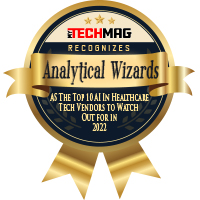
” At eClinicalWorks, we remain committed to the seamless exchange of data”
Electronic health records (EHRs) have been recognized as one of the most significant potential contributors to producing more affordable health care with enhanced health results. In the late-1990s, Girish Navani saw a gap in the current EHR industry that was expecting to be filled. When most vendors only worried about hospitals, Girish provided an answer to the largely overlooked physician practices. He saw a need for technology to maintain a physician’s front, mid and back-office. Girish, CEO of eClinicalWorks, used his background in supply chain applications and envisioned a unified platform to streamline the ambulatory physician practice. He incorporated eClinicalWorks – the largest Cloud EHR in the nation.
eClinicalWorks presents electronic medical records and practice management software, a community health records solution for joining multiple practices and hospitals, patient portals, a messaging application for providers to send text or voice messages to cases, and a mobile application for providers to obtain the solution from a smartphone. Girish built the company in a method that puts their customer first and made the company flexible enough to immediately meet their needs, regardless of how fast the company began. They also offer more functionality than many vendors and remain in continuous contact with the customers for product suggestions and ideas through an online users’ forum and their users’ groups.
More than 130,000 doctors and nurse practitioners and 850,000 medical professionals worldwide depend upon eClinicalWorks to assist them deliver quality care and industry-leading Practice Management solutions. Frost & Sullivan acknowledged eClinicalWorks with their 2017 North American Ambulatory Revenue Cycle Management Customer Value Leadership Award. eClinicalWorks ranked the highest for overall satisfaction in a January 2018 Reaction Data poll of approximately 900 physicians who use an EHR daily. And thousands of providers each year bequeath their legacy EHRs behind for the power and performance of eClinicalWorks.
Laying the Foundation
eClinicalWorks was established in 1999 with a simple goal: Rid doctors’ offices of paper and make each connection providers need — to drugstores, labs, and supply chains. eClinicalWorks intent then was to digitize and enhance communications and workflows. That remains true. But today, their purpose has grown to become one of redefining what is possible — and exacted — in healthcare IT. Through unified cloud-based solutions, eClinicalWorks attempt to control costs, reduce errors, deepen understanding, and enhance the quality of care. They are creating tools to bridge the gaps among providers and patients, hospitals and private practices, and healthcare offices and payers.
To date, 19 eClinicalWorks clients have received the prestigious HIMSS Davies Award for distinction in implementing Electronic Health Records. Privately held, eClinicalWorks answers to consumers, not shareholders. They are innovative, compassionate, and consistently profitable, with 2019 revenues surpassing $600 million. The team at eClinicalWorks has dedicated their careers to enhancing healthcare. They listen to their customers and are proud that the customers consider eClinicalWorks their partners. Each of eClinicalWorks 5,000+ representatives is working toward a common goal of implementing the healthcare technology solutions of now and tomorrow. For more than 20 years, eClinicalWorks has been fulfilling a dream — to present the best products and cloud-based solutions for every client. It is that dream that drives us, that doesn’t let us sleep, and that leads the spirit of constant innovation that has presented eClinicalWorks a leader in healthcare IT.
eClinicalWorks is the business leader among independent, ambulatory practices. Their leading-edge technology and innovation guarantee every aspect of patient care is under restraint, from scheduling and check-in through documentation, labs, ordering, billing, and follow-up. And V11 comes with free hospital interoperability throughout the CommonWell and Carequality nationwide networks.
The Solution
eClinicalWorks all-inclusive, cloud-based solution for hospitals creates unified patient records across all care environments. An intuitive, easy-to-learn interface streamlines workflows, assisting in promoting high-quality care while controlling costs. Providers appreciate the latest data analytics, interoperability solutions, and tools for Population Health, Patient Engagement, and Revenue Cycle Management. Quality healthcare begins with skilled and caring providers, but long-term wellness is enhanced through active Patient Commitment. From Kiosk and Patient Portal to Messenger operations, the healow family of apps, and telemedicine, eClinicalWorks presents tools to improve patients’ access to healthcare, helping promote more extensive involvement and better outcomes.
eClinicalWorks offers a suite of affordable, combined solutions for Population Health, assisting clients in understanding disease patterns, more accurately assess risk, enhance patients’ engagement and satisfaction, and promote better medical results.
Across this broad range, eClinicalWorks clients have emerged as leaders with award-winning results. Multiform eClinicalWorks customers have received the most critical level of the National Committee for Quality Assurance certification for patient-centered medical homes, which is designed to organize care in a primary care setting. Put, the eClinicalWorks private grid cloud is a more reliable way to run your practice. Their nine strategically positioned data centers help ensure the fastest possible access to organizational information, along with scalability, more outstanding uptime, and consistent high-speed access. Your patient and practice data are reliable, secure, and fully accessible, regardless of time, network traffic, or Mother Nature. And the eClinicalWorks cloud keeps the private data private. Users’ system performance will never be influenced by another practice’s upgrades or large search queries, and one may schedule updates when they are convenient for them.
This coordination assists in strengthening the physician-patient relationship, leading to better care presented, more involved patients, and reduce avoidable expenses over time.
Connecting Patients with Themselves
In a world becoming more and more equated by technology, we have countless resources that meet in the palms of our hands. Thanks to smartphones, we are permitted to shop, bank, and manage our social networks and more – whenever and wherever we wish. And companies are working in new ways to meet our requirements by building apps and optimized websites that make our lives more comfortable.
This notion of consumerization – the power of the customer to drive technological innovation – is taking grasp in healthcare. It means giving patients tools to track, register, and maintain their health, and meeting their demand for easy passage to their doctors and personal health information. Empowering patients in this way could drive to significant changes in the healthcare system.
The combination of accelerated digitalization of health data and the growing demand by those who inquire better results from the healthcare system are encouraging consumerization. Where electronic health records (EHRs) have made it more accessible for physicians to share, search, and analyze a patient’s health information, request from patients is growing the capabilities of EHRs even more. Increasingly, patients can access that same information, interact with their physicians, and get involved in their healthcare from everywhere with their smartphones or tablets.
These involved patients are capitalizing on the power of technology to get better results from the healthcare system. Comparable to managing finances using a smartphone, patients are craving for apps that allow them to manage their health by pursuing blood pressure, heart rate, weight, and more. A surplus of health-related apps already exist, but in the future, the most important health apps will be ones that feed data directly to a patient’s EHR. Connected patients will be capable to share information with their doctors without placing foot in a clinician’s office. And based on that information, the doctor can give a patient know they need to schedule an appointment, proceed with prescribed medication, or offer support and assistance for meeting health goals.
Recently, eClinicalWorks declared a commitment to nationwide interoperability at its National Conference, describing its work on the provider experience with combination between the Carequality Interoperability Framework and the CommonWell Health Alliance networks. The health IT company guarantees complete and accurate patient information to promote care with seamless integration across the two networks. eClinicalWorks’ on-demand self-service decision has made the company more successful with providers. In September 2019, over 50 million documents were replaced by the company’s providers between CommonWell and Carequality, and over 2,000 eClinicalWorks practices have allowed the capability to integrate the two networks over the past year.
“The fact that eClinicalWorks presents it easy for its customers to enable participation in nationwide transfer is fundamental,” states Dave Cassel, executive director of the Carequality Interoperability Framework. “Some of the problems in adopting health IT interoperability boil down to the fact that we solely haven’t made it easy enough, or cheap enough, for providers to participate,” continues Cassel. “Decreasing this friction is fundamental to what we do at Carequality, and it’s interesting to see the progress being made in the eClinicalWorks user community as a consequence.”
Approximately 2,500 hospitals and 700,000 providers are currently connected by Carequality and CommonWell. “At eClinicalWorks, we remain dedicated to the seamless exchange of data,” adds Girish. “As a member of the CommonWell Health Alliance and implementer of the Carequality Interoperability Framework, eClinicalWorks guarantees providers have complete and correct patient information at the point of care.”








